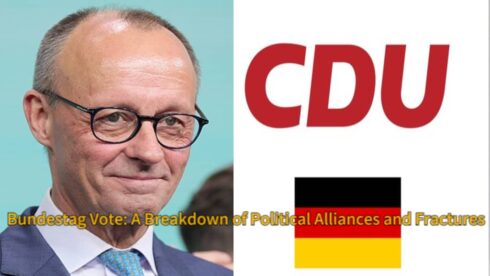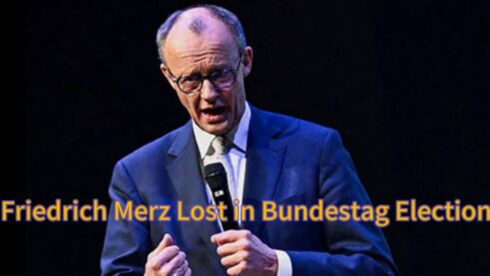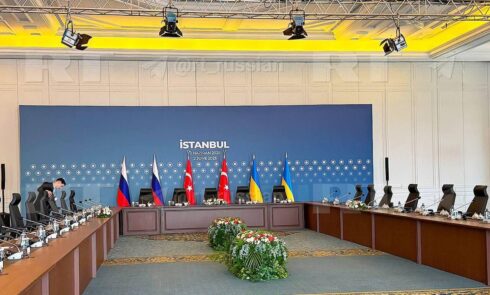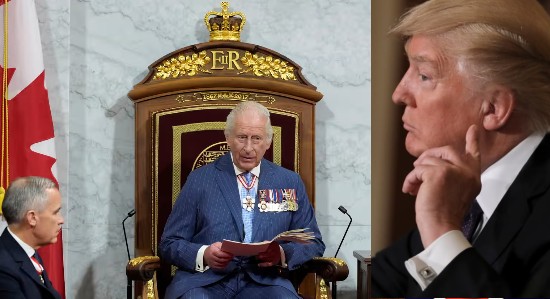Friedrich Merz, the longtime leader of Germany’s Christian Democratic Union (CDU), suffered a significant political blow after failing to secure a majority vote in the Bundestag to become Germany’s next chancellor. The vote, held under high anticipation in Berlin, highlighted cracks within the conservative bloc, raising concerns about CDU’s internal cohesion and Merz’s diminishing influence in Germany’s shifting political landscape.
This loss is a sharp deviation from Merz’s previously bullish momentum as CDU’s leader. Despite months of aggressive campaigning and coalition talks, Merz could not muster enough support from either his party’s backbenchers or potential allies from the opposition. The failed bid raises questions about the CDU’s direction and the feasibility of Merz’s leadership strategy in post-Merkel Germany.
Bundestag Vote: A Breakdown of Political Alliances and Fractures
Friedrich Merz entered the Bundestag vote believing he had secured tentative agreements with smaller parties, including the Free Democrats (FDP) and segments of the Greens. However, several last-minute defections and abstentions shifted the balance, leaving Merz short of the required votes. The Bundestag’s outcome reflects a broader unwillingness among centrist and left-leaning lawmakers to align with Merz’s vision for a conservative revival.
Political analysts argue that the vote has laid bare the volatile dynamics of coalition politics in Germany. Friedrich Merz’s inability to court crucial swing votes underscores the challenges facing any chancellor candidate outside the traditional grand coalition model. In an increasingly fragmented Bundestag, ideological rigidity may be a political liability.
Merz’s Vision for Germany Rejected: What Voters Signaled

Friedrich Merz has long championed a return to conservative economic values, stricter immigration controls, and a more assertive foreign policy. His failed bid suggests that the Bundestag—and by extension, the electorate—are not aligned with such an agenda at this juncture. The rejection could signal a public appetite for continuity, stability, and centrism rather than ideological shifts.
Public opinion polls leading up to the vote indicated dwindling support for CDU under Merz’s stewardship, particularly among younger and urban voters. While Merz presented himself as a reformist alternative to past CDU leadership, his messaging did not translate into broad-based support across Germany’s socio-political spectrum.
Opposition Parties Capitalize on Merz’s Failure
Friedrich Merz’s collapse in the chancellor vote gave the opposition a rare moment of triumph. The Social Democrats (SPD), Greens, and the Left were quick to frame Merz’s defeat as a rejection of divisive politics and a validation of progressive governance. SPD leader Lars Klingbeil declared it a “victory for democratic moderation.”
Behind the scenes, coalition strategists from opposing parties are already leveraging Merz’s downfall to solidify their own influence. By showcasing the CDU’s inability to form a viable governing majority, these parties may be laying the groundwork for either a snap election or a renewed push for a multi-party center-left alliance.
Internal CDU Rebellion or Miscalculation?
Friedrich Merz now faces intense scrutiny from within his own ranks. High-ranking CDU officials are reportedly questioning his strategic acumen, particularly his reliance on brinkmanship and his failure to build cross-party consensus. Some insiders suggest the vote revealed not only external resistance but also internal dissent.
The CDU’s parliamentary wing is said to be considering emergency meetings to reassess leadership and party direction. While Merz retains formal control, the failed vote may embolden party moderates and Merkel-era loyalists to demand a more inclusive and pragmatic approach to coalition politics.
Germany’s Political Future Uncertain After Merz’s Loss
Friedrich Merz’s defeat leaves Germany in a precarious state of political uncertainty. With no clear path to a stable government, discussions of forming a caretaker cabinet or calling fresh elections have resurfaced. Germany’s political machinery, long admired for its stability, now faces a rare period of unpredictability.
The implications for European and international policy are equally significant. Germany’s delayed leadership transition could stall EU-wide decisions on energy, defense, and trade. As Merz regroups and his rivals maneuver, Germany’s role as a leading force in Europe hangs in the balance—its future shaped not by ideology alone, but by the complex calculus of coalition governance.














